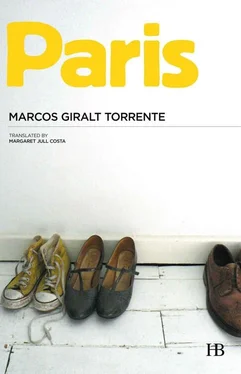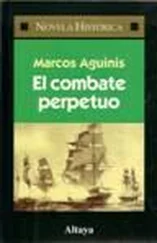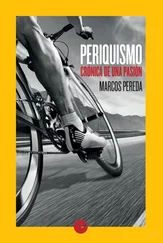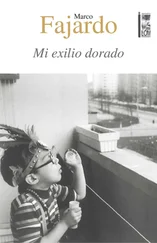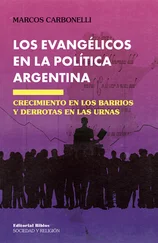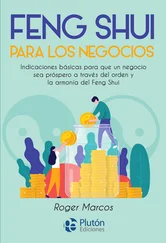Marcos Giralt Torrente - Paris
Здесь есть возможность читать онлайн «Marcos Giralt Torrente - Paris» весь текст электронной книги совершенно бесплатно (целиком полную версию без сокращений). В некоторых случаях можно слушать аудио, скачать через торрент в формате fb2 и присутствует краткое содержание. Год выпуска: 2014, ISBN: 2014, Издательство: Hispabooks, Жанр: Современная проза, на английском языке. Описание произведения, (предисловие) а так же отзывы посетителей доступны на портале библиотеки ЛибКат.
- Название:Paris
- Автор:
- Издательство:Hispabooks
- Жанр:
- Год:2014
- ISBN:9788494228452
- Рейтинг книги:5 / 5. Голосов: 1
-
Избранное:Добавить в избранное
- Отзывы:
-
Ваша оценка:
- 100
- 1
- 2
- 3
- 4
- 5
Paris: краткое содержание, описание и аннотация
Предлагаем к чтению аннотацию, описание, краткое содержание или предисловие (зависит от того, что написал сам автор книги «Paris»). Если вы не нашли необходимую информацию о книге — напишите в комментариях, мы постараемся отыскать её.
Paris — читать онлайн бесплатно полную книгу (весь текст) целиком
Ниже представлен текст книги, разбитый по страницам. Система сохранения места последней прочитанной страницы, позволяет с удобством читать онлайн бесплатно книгу «Paris», без необходимости каждый раз заново искать на чём Вы остановились. Поставьте закладку, и сможете в любой момент перейти на страницу, на которой закончили чтение.
Интервал:
Закладка:
I can’t even be sure of things that happened only to me, and can’t detach the memory of what happened after the argument with my aunt from the subsequent feeling of dread that filled my mind even before I had any real reason to fear anything. There are times when it seems we can predict what awaits us, and in a fraction of a second, that future appears before our eyes like a melody that suddenly springs to our lips, a melody sprung from some lost corner of time and that our lips spontaneously begin to whistle. These are only ever very brief moments, they tend to occur during times of extreme melancholy or exhaustion, and like those catchy tunes unexpectedly brought back to life, they are forgotten as soon as we become aware of them. It has to happen like that for the premonition to come true, because otherwise, the fear and dread it stirs up would be enough to destroy it. I knew that the conversation between my mother and my aunt would inevitably be continued in another conversation between my mother and myself. I knew this from the moment my aunt ordered me into the living room, from the look my mother gave me when, making as if to get up from the armchair in which she was sitting, she suddenly released her grip on the arms and sat down again. What I didn’t know then, but sensed when the argument between them had finished and they started behaving as if they had never exchanged any reproachful remarks or shed any tears in my presence, was that there would be no room in what my mother would say to me for what happened during her time in Paris — which I would not mention, either — and that she would speak about other, entirely unimagined things.
That desolate, urgent certainty lends a phantasmagorical air to my memory and prevents me from painting a true picture of how we spent the rest of the evening, or even what we spoke about over breakfast the next morning. All real trace of what we did has vanished along with most of the gestures and words we exchanged from the moment my mother finally got up from her armchair, came over to where Delfina and I were standing, and gave each of us a kiss. My aunt did not travel back to La Coruña that night, but apart from that detail, the only impressions I can summon up are far too feeble and subjective. I seem to remember, for example — although I can’t be sure that it isn’t a vision retrospectively contaminated by what would come later — that Delfina seemed very nervous and was more silent than usual. I seem to remember her attempts to disguise her nervousness and to keep from sliding into the dark abyss of her thoughts, the meekness and theatrical stoicism with which she tried to regain her composure, and I seem to remember, too, the silences and the pauses in their hesitant attempts at conversation, as well as my own docility and the dumb fixity with which I waited, paralyzed and expectant, incapable of contributing anything more until what I knew would happen finally happened. I remember, or seem to remember, my mother’s vigilant eyes and her tense posture, like some crazed illuminist, as she searched inside herself for the right words to use the following day, enjoying the kind of illusory truce experienced by a patient or a prisoner in the hours before hearing, from the doctor or the trial judge, their unpostponable sentence. I remember the look on her face, one of concentration and fear combined with a feeling of relief and confidence that her calvary was almost over, the beatific serenity of someone who prefers the certainty of knowing her fate to the torment of uncertainty. I seem to remember my overloaded brain buzzing while I repeated to myself whole segments of their still recent argument, and that on several occasions, I glanced from one to the other, trying to establish which of them had been more wrong, which of them had been weaker and more insincere. I seem to remember, or so it seems to me now, the great, suffocating weight of a past that was not mine and I did not accept as mine, and the fragile and far too dependent future that I represented. I remember their attentiveness, their efforts to reassure me and play down the importance of their argument; I remember their feigned cheerfulness, the anecdotes they insisted on dredging up from their reluctant memories in order to distract me; and I remember, too, how clearly I saw that this was an act they were putting on, and how differently they would have behaved had I not been there. I seem to remember my sporadic attempts, foiled before they even began, to dynamite the whole performance, to say, “Enough is enough,” and I seem to remember my confusion, my touching ineptitude, my inability to take control of the situation. I remember all that, or so it seems to me, and I was, I believe, aware of my mother’s unusual firmness — with her behaving for the first time more like mother than daughter — and aware, too, of my aunt’s fatalism, resignation, and capitulation, and of the irreparable breach that had been opened up between them by the unspoken conviction, shared by all three of us, that nothing would stop my mother now, that she would do whatever she liked and had already made her decision. I think that, despite everything, a certain calm prevailed and that no one mentioned my father by name, not even when my mother and my aunt began spelling out to me, in hesitant detail, the chain of events that had led us to that situation: my aunt’s phone call from La Coruña to ask about the furtive meeting in the café, my mother’s confirmation of this, to which she innocently added the fact that she intended to sell the apartment, Delfina’s fury and her hasty trip to Madrid. . I think there was even a point when my aunt could not help going back in time and asking my mother, “But did he ask you to sell the apartment?” to which my mother, with no trace of anguish or grief, only weariness, answered, “No, he just asked me for money. I was the one who suggested selling the apartment. It seemed only fair.” And I think that after a brief period of embarrassment following their earlier disagreement, and determined not to highlight their palpable dissent, they turned their respective gazes inwards, and my mother added, as if to herself, “I had to do it, the poor guy.”
I’m not really sure about anything until the following morning, at breakfast, and even then the substance out of which my memories are built crumbles at the slightest touch. Were it not for the deceptive slowness with which those hours passed, I would say they were like a wandering mountain stream, as likely to disappear into the earth and travel long distances underground as to resurface later on and cascade over waterfalls — a burbling, sinuous torrent that one moment, divides, leaving behind it unexplored, barely glimpsed byways about which I can say nothing, and the next, swells and swirls deeper in pools and in the labyrinthine meanderings with which it cuts through valleys and riverbeds. Those hours were too dense and too exhausting, the frontier represented by their waters too choppy and full of rapids and whirlpools, its fords and shallows too uncertain, and too few and slippery the precariously improvised bridges and stepping stones providing a way across the chasm between the two banks, between what I had once wanted to know but, despite all my suspicions, never will and what is now fixed but of which I had no inkling then, no knowledge. It’s almost dead time, neither irrelevant nor empty, but as impossible to separate off from the uncertain past that precedes it as from the experiences and thoughts that came afterward. Not only is there a marked contrast between my expectations of what was to come and the subsequent reality, there are still too many unknowns that resist its onslaught. There are still too many burdensome associations, too many persistent echoes of old rules and old ways, too many dilemmas arising out of that meeting in the café, and too much new and as yet unassimilated information emerging from the heat of that recently witnessed argument, too much dizzying anticipation at what I felt sure would be the imminent denouement , and the powerful, all-enveloping sense, projected onto it by the present, that something was about to end; the impression that grips me when I look back is that, afterward, nothing was the same, that everything ended and began again, that while certain stretches of the stream’s course remained unaltered, both its final course and the map were irrevocably changed. No more father, either alone or in company. No more Paris. No more of my mother’s incomprehensible stubbornness. No more only-child inquisitiveness. No more triangular relationships with me as the vertex. But the doubt would last forever. The weight and shock and grief and resentment would last forever. My mother and I would be together forever and forever apart. The need and affection would last forever, as would the threatening murmur of the dark night in which we turn in despair to the warm illusion of the person sleeping beside us.
Читать дальшеИнтервал:
Закладка:
Похожие книги на «Paris»
Представляем Вашему вниманию похожие книги на «Paris» списком для выбора. Мы отобрали схожую по названию и смыслу литературу в надежде предоставить читателям больше вариантов отыскать новые, интересные, ещё непрочитанные произведения.
Обсуждение, отзывы о книге «Paris» и просто собственные мнения читателей. Оставьте ваши комментарии, напишите, что Вы думаете о произведении, его смысле или главных героях. Укажите что конкретно понравилось, а что нет, и почему Вы так считаете.
